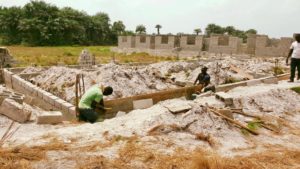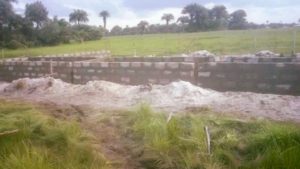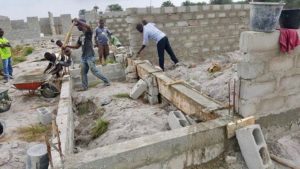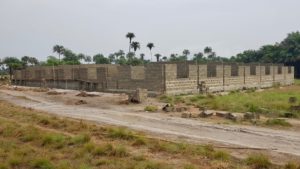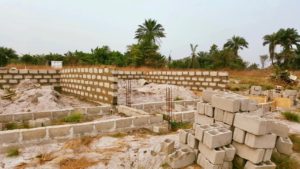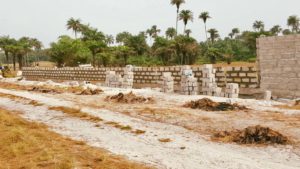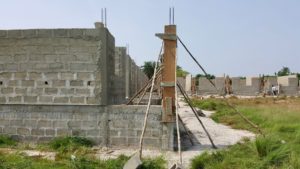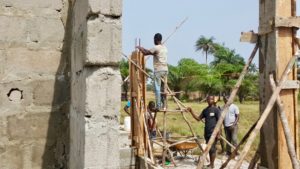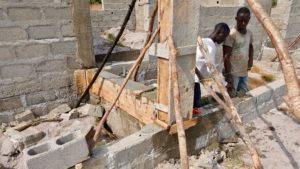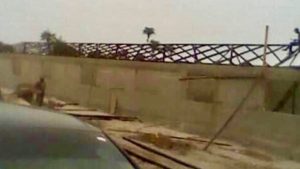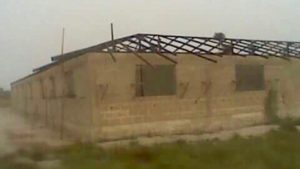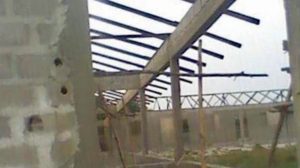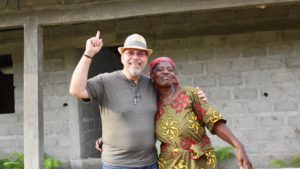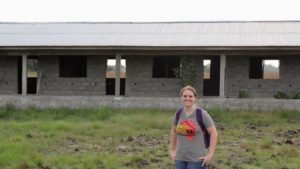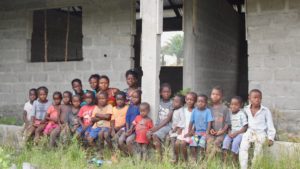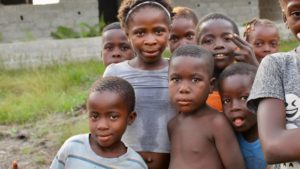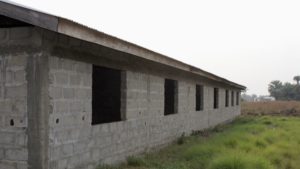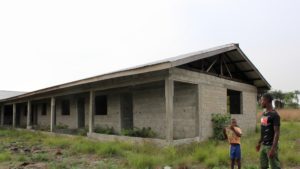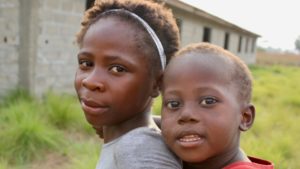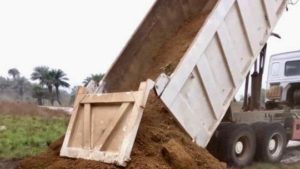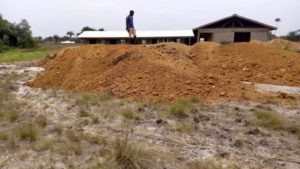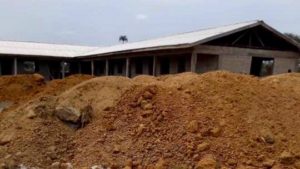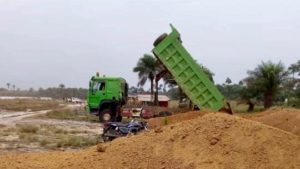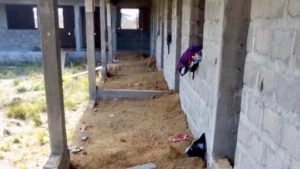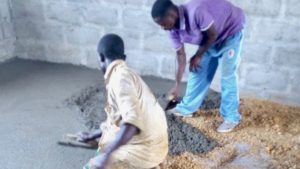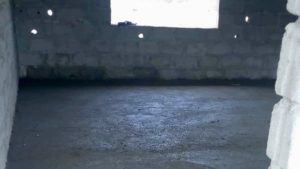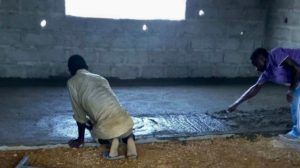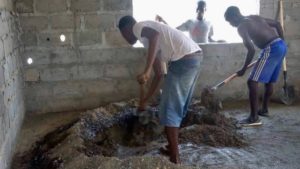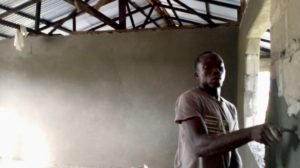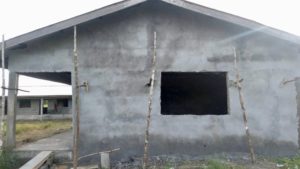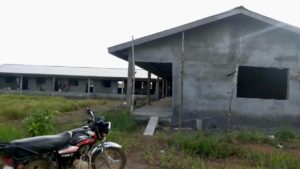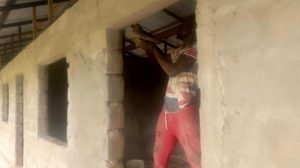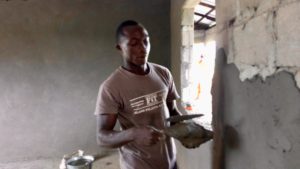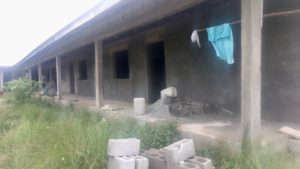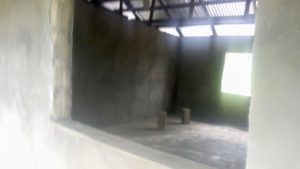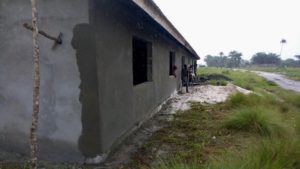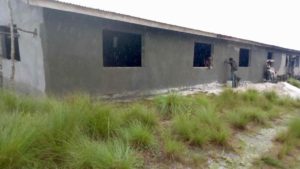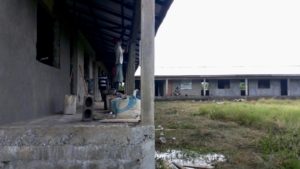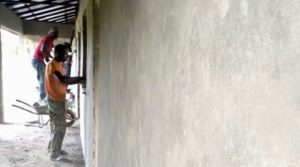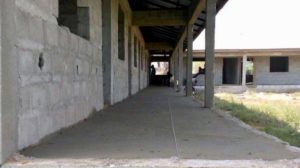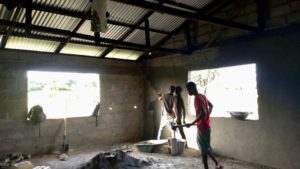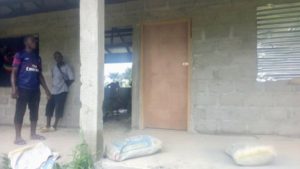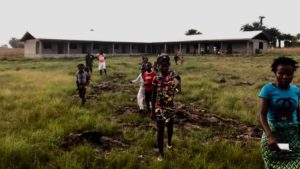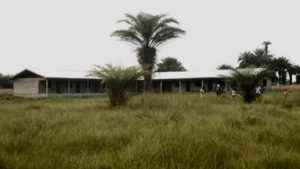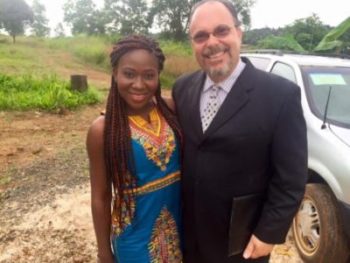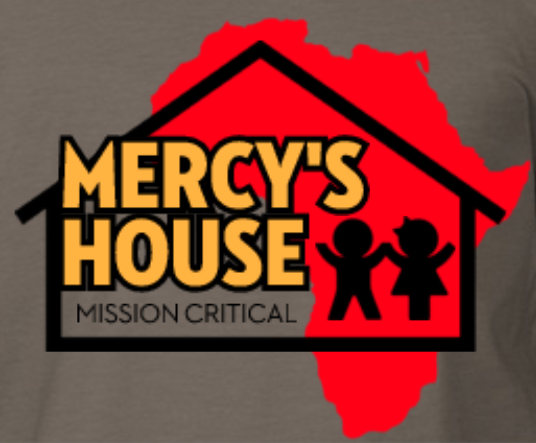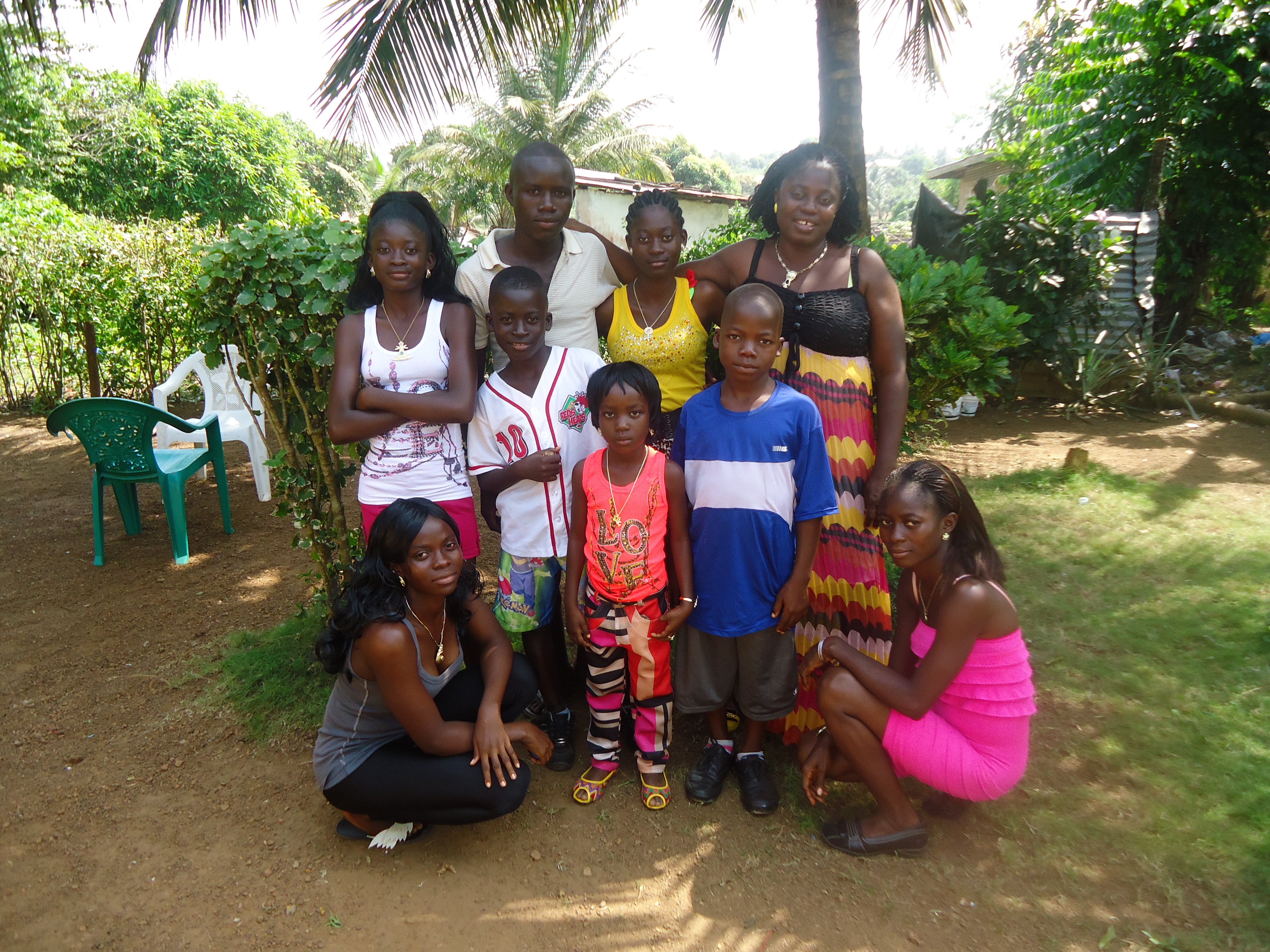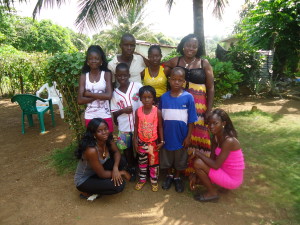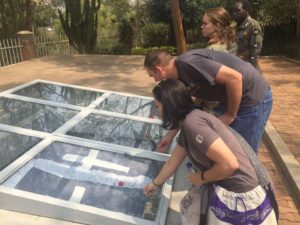
Placing roses on the mass graves.
Almost exactly a year ago today I received a text message while at work at Baxalta; it said that dad had been in a car accident and totaled the only vehicle that my family had. I informed my boss of the situation and he being the amazing human being that he is, may God have mercy on his soul, told me to go home. On the way home I was praying and fighting with the Spirit regarding how I felt about the situation. I arrived at the freeway exit and hit a red light, while waiting for it to turn green so I could turn left to get home; I felt God ask me why I didn’t join my dad in ministry. I responded angrily and tearfully while beating the poor steering wheel of my car yelling, “My dad gives to the poor, loves people, and if anyone has ever trusted You in faith he does!” “Yet he is always broke, always abandoned by his friends, and can’t even own a car!” “If this is how you treat those who give everything to You and trust You in faith then I want no part of it, no thank you God, I don’t have enough faith and you don’t take care of my family enough, to abandon all my hard work for You.” I was expecting Him to respond in anger or condemnation but instead I felt the Spirit ask me what it would take for me to join dad in the ministry; I asked for a salary. I told Him that if he could match 60% of my Baxalta salary I would quit my job and join dad in full time ministry, but the money couldn’t come from donors, couldn’t come from Mission Critical, and couldn’t come from dad’s business; it had to be free of all strings and just magically appear into my account every month. If God could answer that one simple prayer and show me that He does indeed take care of His children who trust Him at all times then I would walk in faith to wherever the Spirit led.
Less than a week later I felt spiritual warfare all around every aspect of my life. I could sense demons stalking me everywhere I went and I could sense angels praying for me and encouraging me. Obviously I was terrified and oddly curious as to what was going on. I spent hours in prayer, reading the word, and doing everything I could to minister to anyone I ran across. The spiritual presence intensified to the point that I walked outside at 4 in the morning with my hands raised in the air yelling at God, asking Him what the heck was going on! He responded, “trust me at all times, abandon everything and follow me.” A few short hours later I parked my car at an unknown location in downtown Atlanta and simply walked away from it, threw my keys off a bridge, threw my phone on the ground shattering it, and threw my wallet into someone’s mailbox; odd I know. The spirit strongly encouraged me to perform a miracle and told me, “We will walk and not grow weary, we will run and not faint.” So I walked, ran, walked, and ran all over Atlanta without saying a word for the following 28 or so hours. Never grew tired, nothing hurt, never grew hungry, and had no sore muscles the following day. While walking I saw many signs and wonders as well as many visions, some of which have been explained since, most of which are still a mystery to me. However, at the end of the walk I could not remember my name or where I left any of my belongings so I was committed to a psych ward. I have no idea how my family found me but they did and came and collected me.
Several months later after applying for veteran benefits I was declared disabled both physically (bone spurs on my feet and loss of hearing in my left ear) and mentally (PTSD). I received a disability pension that equaled 80% of my Baxalta salary and at that moment I knew God loves His children and can indeed do mighty miracles through those who trust in Him at all times. So I joined Mission Critical full time as we started planning several trips for 2016.
The first trip was to Colombia and I wrote 2 blogs of my experience there and I highly recommend to anyone who wishes to please read them, one was about the children in poverty there and around the world, the other was about veterans here and abroad. Both were written from the heart and difficult to write but expressed what the God of Abraham, Isaac, and Jacob is doing around this world with both children and veterans from my point of view. While those blogs came from the heart and were hard to write both pale in comparison to the experience I had in Rwanda.
Rwanda, oh how I could write from now till Jesus returns about the blessings and trials that country is and has been through and it wouldn’t cover a fraction of the feelings I have for that country. I read many military briefs and summaries of Rwanda while I was in the Navy, both of the failure of the international community to step in during the genocide and of the massive accolades that Rwanda has received for it’s humanitarian work since then. When I started working for Mission Critical and I heard that we had a contact in Rwanda who was working to build a Mercy’s house there and how he wanted us to come and preach there my first response was; who are we that Rwanda has anything to hear from us? We are not worthy to set foot in that sacred country; on that sacred ground. Yet in July of 2016 Rebekah, Brooke, Dad, and I stepped off a plane onto the tarmac in Rwanda, and THAT story alone is a miracle that needs to be told on another day. When we stepped off the plane, the same angels that I heard praying for me in Georgia were singing praises to God for us around the airport. I never felt closer to God than the day I went walking in faith in Atlanta, and stepping off the plane in Rwanda.
But what was it specifically about Rwanda that is so hard to write about? Is it the genocide that happened? The fact that that genocide happened during my lifetime? The fact that I remember watching it unfold on the news as a kid? Yes and no. On our first day in Rwanda, my first time ever visiting Africa, we ran many errands to finish the final preparations for the many crusades that pastor Ndagijimana had planned for us, also on our first day in Rwanda we discovered that not only had Ndagijimana finished and finalized the paperwork to make Mission Critical Rwanda a legitimate entity in Rwanda but that he also planted five churches under it. So now not only are we a mission team in Rwanda trying to start building an orphanage there, we are the heads and representatives of five new churches in the country, shocking news to us. After running many errands to finish preps for the crusades he planned we visited the genocide memorial. Let me say that nothing prepared me for what we were about to see.
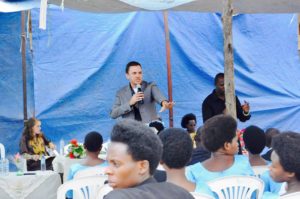
Preaching in Nygatare
We arrived at the museum and I noticed that they were selling roses to place on the graves, the proceeds for the sales would go to the families of the survivors. “Magically” there “happened” to be 5 roses left for sale, there were 5 of us, so I bought them and we walked down to the graves. I had no idea what to expect from this visit or what the graves would look like but as we walked down the steps I saw 5 large slabs of concrete surrounded by black walls with red roses bushes, the blocks of concrete looked like half finished basketball courts to me, rough and just sitting on the ground with no edging. When it finally hit me what those blocks of concrete were; I audibly gasped, I started shaking, and had to remind myself to breathe. I was looking at the unmarked unfinished tombstones of 250,000 people. My dad happened to be nearby and I grabbed him violently so I wouldn’t collapse. I couldn’t speak, couldn’t breathe, and couldn’t walk. He gently but forcibly shoved me forward trying to remind me, I guess we haven’t talked about it since, not to make a scene at this place of remembrance. At the bottom of the steps, there was a wall with many names on it. I thought at first how odd it was that SO MANY of their first names were the same, then I realized that they listed the last names first. Because this was a genocide of a specific ethnicity of people and of course they wiped out whole families, so this wall has at one spot 26 last names that match, the entire family. The rest of the museum is dedicated to laying out the history of the country, the theology and colonial history that led to the genocide, the actual daily events of the genocide, and the aftermath of the genocide. Before colonialism Rwanda did not have different ethnicities, just a social caste system that presented titles to different Rwandans based on their wealth or social standings. The Belgians took this caste system and made it, forcibly, into different ethnicities in order to more efficiently rule over the Rwandans. After Rwanda became free this social order remained and the church even got in on it by teaching Hamitical theology to support the idea that some Rwandans were born lesser than others, children of Ham. This entire situation came to a head in the 90s where the government spent at least 10 years planning the genocide as a final solution to the problem of the children of Ham and set in motion the Genocide. 1 MILLION people killed in less than 100 days, faster and more efficient than the Nazis. Afterward the “children of Ham” took over the country and wiped out all records of ethnic background and basically forgave the perpetrators of the genocide. Sentences were handed out but in our eyes would be considered very lenient. How do you punish 2/3rds of your country for killing the other 1/3rd of the country, there wouldn’t be enough jails or gallows to hand out actual justice.
THIS is the Rwanda that shocked me. As an American I’m used to stories of gross injustice where a hero rises up and overcomes evil. While that story IS there, the oppressed people rose up and using sticks and stones defeated the government forces who had guns and tanks and stopped the genocide, but the ending surprised me. How can you forgive, how can you move on, how can you let people who machete’d unarmed men, women, and children in the streets return to normal life after only repairing a road here and a house there? How does Rwanda today set the example of humanitarianism in Africa only 20 years after the genocide which had deep systemic racism for the 150 years before that? Obviously from my point of view God worked a miracle but these aren’t the kind of miracles I was taught in American churches. I’m used to the miracles and stories of God stopping injustice and punishing the sinners who abuse the innocent. I’m not familiar with the stories of how God seemingly turns a blind eye to horrible horrendous offenses and then FORGIVES the offender. I’m familiar with the God who protects the innocent, not the God who allows the innocent to suffer so that He wins over the abuser. While I earnestly believe that every victim of the genocide was and is dearly loved by God who comforted them in the afterlife for their suffering. I also learned from Rwanda that the same God forgave and loves millions of the perpetrators who committed the genocide and comforted them in the afterlife from the guilt of their actions. That is why the visit to Rwanda shocked me so badly that I had to remind myself to breathe, but also took me months of reflection before I could write a blog about it.
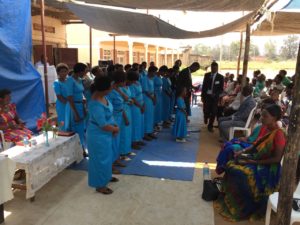
The blue choir
What does my story in Atlanta have to do with this? Minutes after throwing my keys off the bridge I was led into a tunnel that had beautiful murals on both walls of African women in blue dresses who were staring at me, their eyes and expressions followed me through the tunnel; as if to say, “don’t give up Levi, we need you.” Two weeks after visiting the museum I was scheduled to preach a sermon to our new church in Nyagatare, a border town in the North East of Rwanda, and as I stood up to preach I realized I was preaching to the choir from Kigali, Rwanda’s capital and our base of operations in East Africa. They were all beautiful Rwandan women wearing blue dresses who were staring earnestly at the American who was about to deliver God’s word. During my sermon I was reminded of that vision so I forsook my notes and mentioned it to them. I don’t know entirely why God wanted me in the ministry, I have nothing to offer, but I do know that during the genocide which rocked Africa and the entire world in 1994, He knew I’d visit that museum and learn something about how He truly works and what forgiveness actually looks like. The story of redemption in Rwanda, redemption in my life, and the Bible for that matter is not a story of an underdog who overcame evil and stops injustice from happening. It is a story of an innocent defenseless man who is brutalized, tortured, and killed and yet forgives all involved. Just like Rwanda is a story of a group of people who were brutalized, tortured, raped, and killed and yet forgave all who were involved. Rwanda could have easily rejected the Gospel of Jesus which was taught hand in hand with Hamitical theology for 150 years and returned to their tribal ways which were very peaceful for thousands of years. Instead on that museum etched in the wall are written these summarized words, “While the Europeans brought racism and genocide, they also brought modern medicine and the Gospel of Jesus Christ, and for that we thank them.”
Probably the most chilling and yet amazing words I’ve ever read.
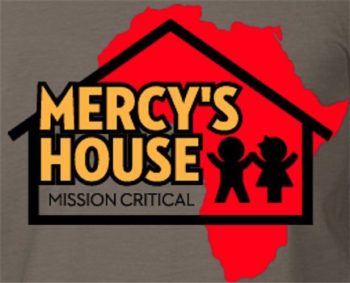 Mercy’s House is Mission Critical’s outreach to orphans and children in need of education and homes on the continent of Africa. Our first project is a school in Monrovia, Liberia, the hometown of our beloved adopted Liberian daughter, Mercy.
Mercy’s House is Mission Critical’s outreach to orphans and children in need of education and homes on the continent of Africa. Our first project is a school in Monrovia, Liberia, the hometown of our beloved adopted Liberian daughter, Mercy.

